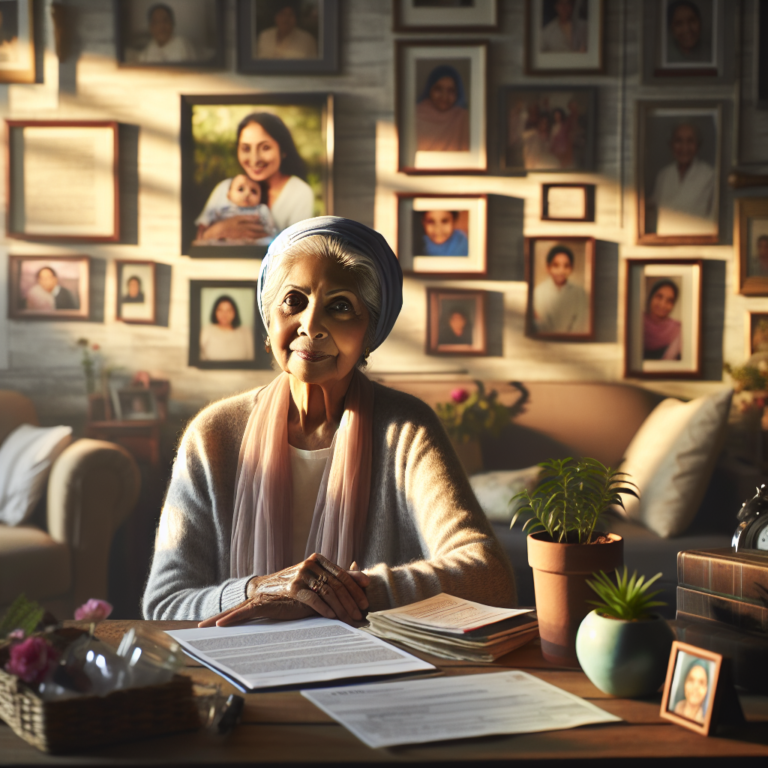Empowering My Future: A Journey of Self-Advocacy and Personal Growth

A Journey Through Pancreatic Cancer: Survivor’s Story and Advocacy
In the realm of cancer battles, few stories resonate as deeply as that of a pancreatic cancer survivor. After being diagnosed in 1994 at the age of 44, the path was fraught with fear and uncertainty. This individual has not only survived against the odds but has also become a beacon of hope and advocacy for others facing similar struggles. This account details their journey, treatments, and transformation into a passionate health advocate.
Facing the Diagnosis of Pancreatic Cancer
Initially, symptoms like weight loss, fatigue, and abdominal pain were dismissed as gallstones. However, a shocking diagnosis of pancreatic cancer changed everything. At that time, knowledge about this type of cancer was limited, and the prognosis was grim. Most patients, as reported by the American Cancer Society, did not survive beyond four to six months post-diagnosis.
- Initial Symptoms: Weight loss, fatigue, abdominal pain
- Year of Diagnosis: 1994
- Age at Diagnosis: 44
The Whipple Procedure: A Ray of Hope
After qualifying for the Whipple procedure, the patient underwent surgery with renowned transplant surgeon Dr. Lawrence Koep. This operation involved the removal of the head of the pancreas, leading to a diagnosis of mucinous cystadenocarcinoma, a rare form of pancreatic cancer. At that point, standard treatment options like chemotherapy and radiation were nonexistent.
- Surgery Type: Whipple procedure
- Surgeon: Dr. Lawrence Koep
- Cancer Type: Mucinous cystadenocarcinoma
For five years, this survivor lived with hope, participating actively in their healthcare. Joining the Cancer Support Community helped them understand the importance of being proactive, learning to ask questions, and seeking second opinions—skills not instilled in them during their upbringing.
When Cancer Strikes Again
Just as they were about to celebrate five years of survival, the cancer returned, necessitating the removal of the remaining pancreas and spleen. This brought about new challenges, including insulin dependency and the need for digestive enzymes. During a follow-up CT scan, doctors discovered metastasis near the aorta, leading to consultations with leading oncologists.
- Surgery for Recurrence: Removal of pancreas and spleen
- New Challenges: Insulin dependence, digestive issues
Experimental Treatments and Renewed Hope
After seeking advice from Dr. Daniel Von Hoff at the University of Arizona Cancer Center, the survivor was encouraged to explore options at MD Anderson in Houston. Experimental treatment with Gemzar led to a miraculous response, shrinking the tumor and allowing surgery to remove the lymph node mass. Once again, the individual found themselves in the ‘No Evidence of Disease’ stage.
- Experimental Treatment: Gemzar
- Outcome: Tumor shrinkage, surgery success
Continued Vigilance Against Metastasis
Three years later, a small lung nodule was discovered. Despite assurances from doctors to monitor it closely, the survivor’s instinct led them to seek further testing. A biopsy confirmed pancreatic cancer’s return, prompting the removal of a lung lobe by Dr. Camilla Mican. Presently, while managing small nodules in both lungs, the survivor remains vigilant, undertaking genetic testing and consultations with the HonorHealth Research Institute.
- Lung Surgery: Lower right lung lobe removal
- Current Status: Small nodules, stable condition
Advocacy and Community Engagement
Embracing their experiences, this survivor has become a dedicated advocate for pancreatic cancer awareness and research. They founded Arizona’s first pancreatic cancer support network through the Cancer Support Community, celebrating over 13 years of advocacy. Their ongoing commitment to educating patients and participating in clinical trials reflects a deep understanding of the importance of research in combating this formidable disease.
- Advocacy Role: Patient advocate, grant reviewer
- Community Contributions: Founded pancreatic cancer support network
In their conversations with researchers, the survivor humorously yet poignantly expresses the urgency of finding solutions, remarking, “PLEASE find something soon . . . I am running out of body parts.”
Through this remarkable journey, the survivor not only showcases resilience but also exemplifies the power of community and advocacy in the fight against pancreatic cancer.






